
Little Tibet is an enclave of Parkdale that is home to the largest Tibetan diaspora outside of Asia.
With its main drag running along Queen Street from around Dunn Ave. to just west of Sorauren Ave., the non-Tibetan citizenry know this area as one of the only places in Toronto to find traditional cuisine like momos and thenthuk noodles.
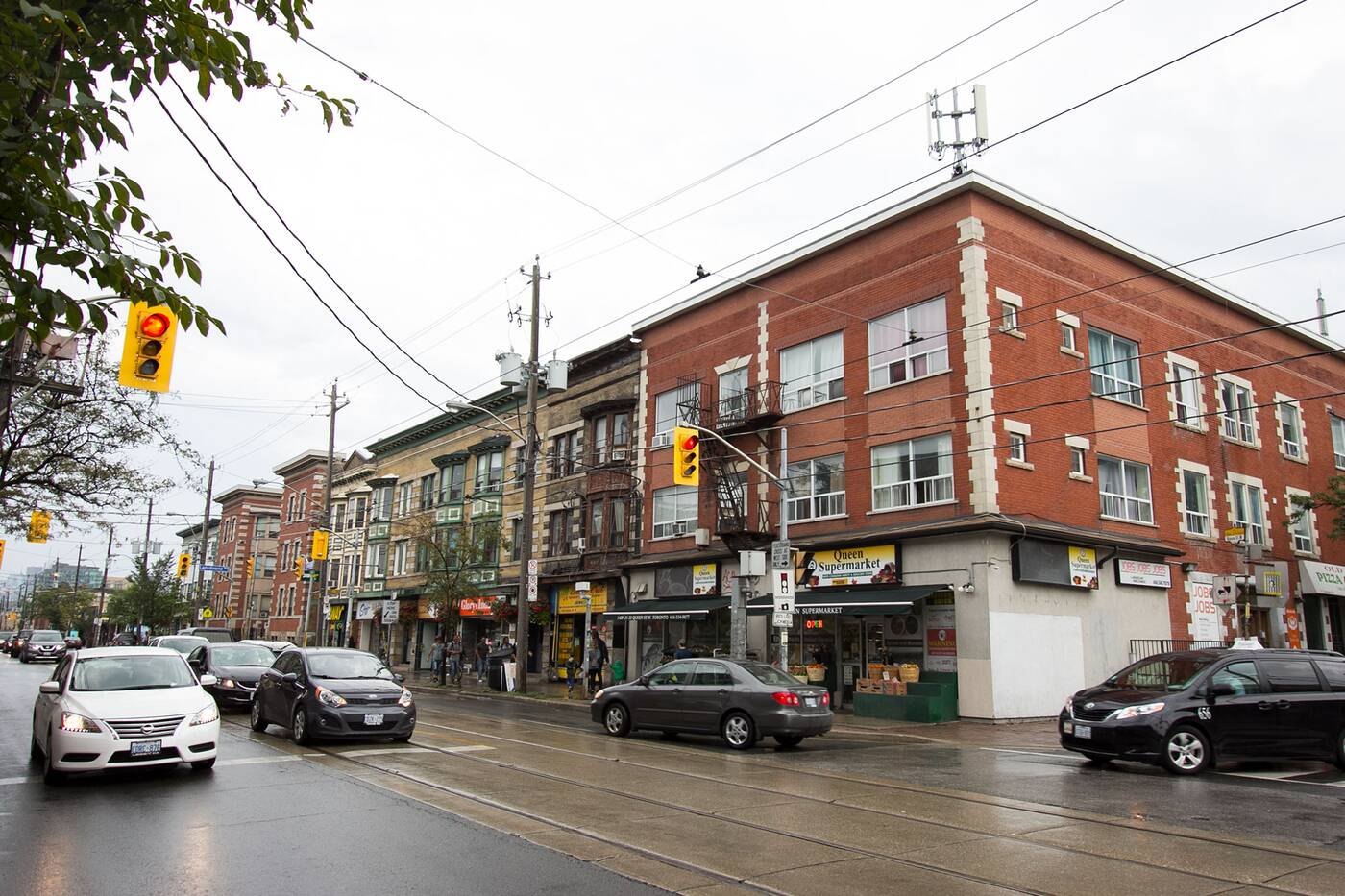
Little Tibet is an ethnic enclave that is home to the largest Tibetan diaspora outside of Asia.
But for the tightly-knit community that lives in Little Tibet proper (which encompasses the residential area between Queen, the Gardiner, and Atlantic Ave.) this busy neighbourhood is more than just a place for Tibetans to set up shop.
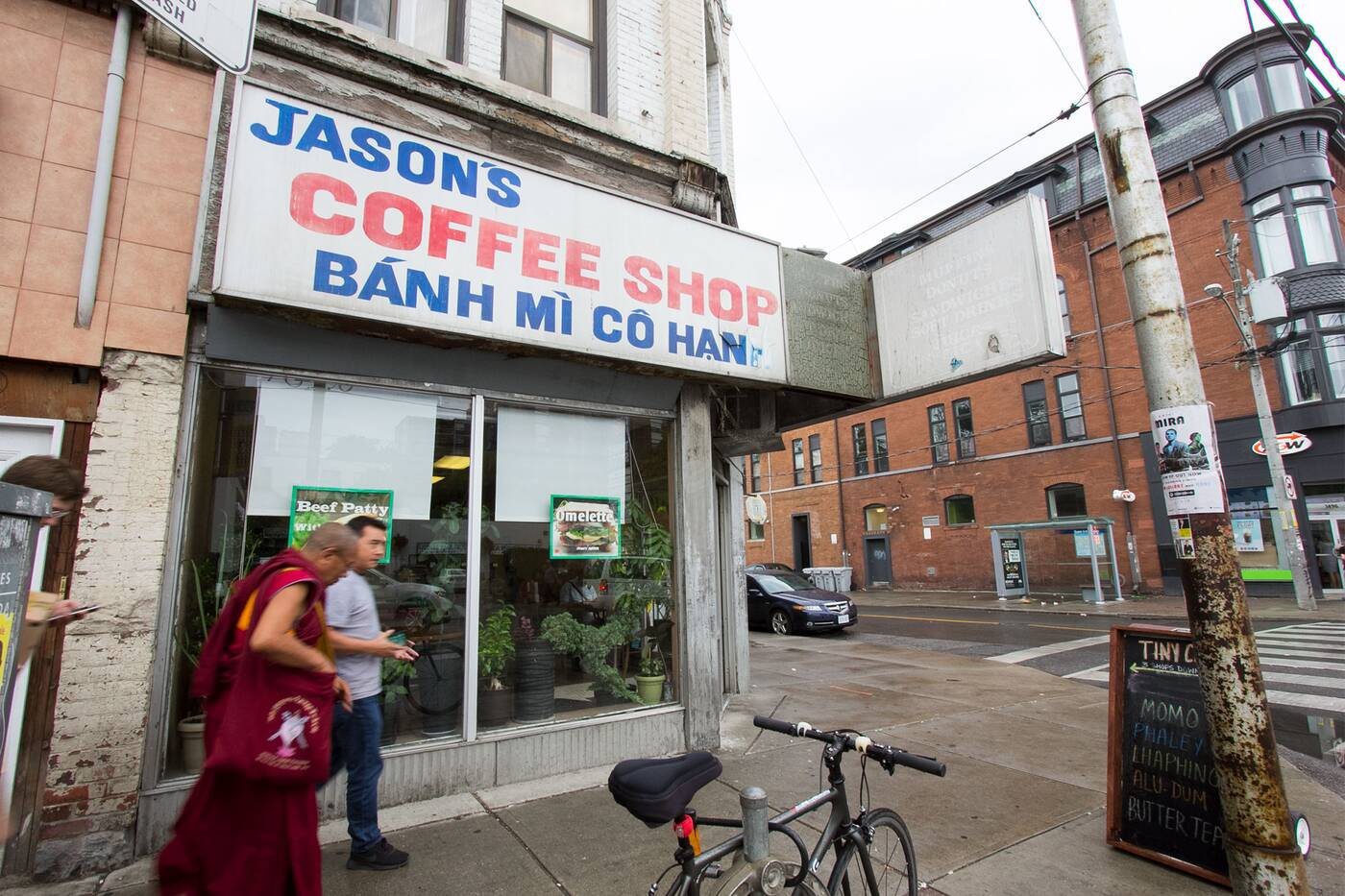
Jason's Coffee Shop has been a social hub in the community for many years.
Known as 'the gateway' to Canada, Parkdale and its historically affordable housing (though slow-burning friction escalating between developers and residents is changing the landscape) have long been viewed as ideal landing ground for those fleeing Chinese-occupied Tibet.
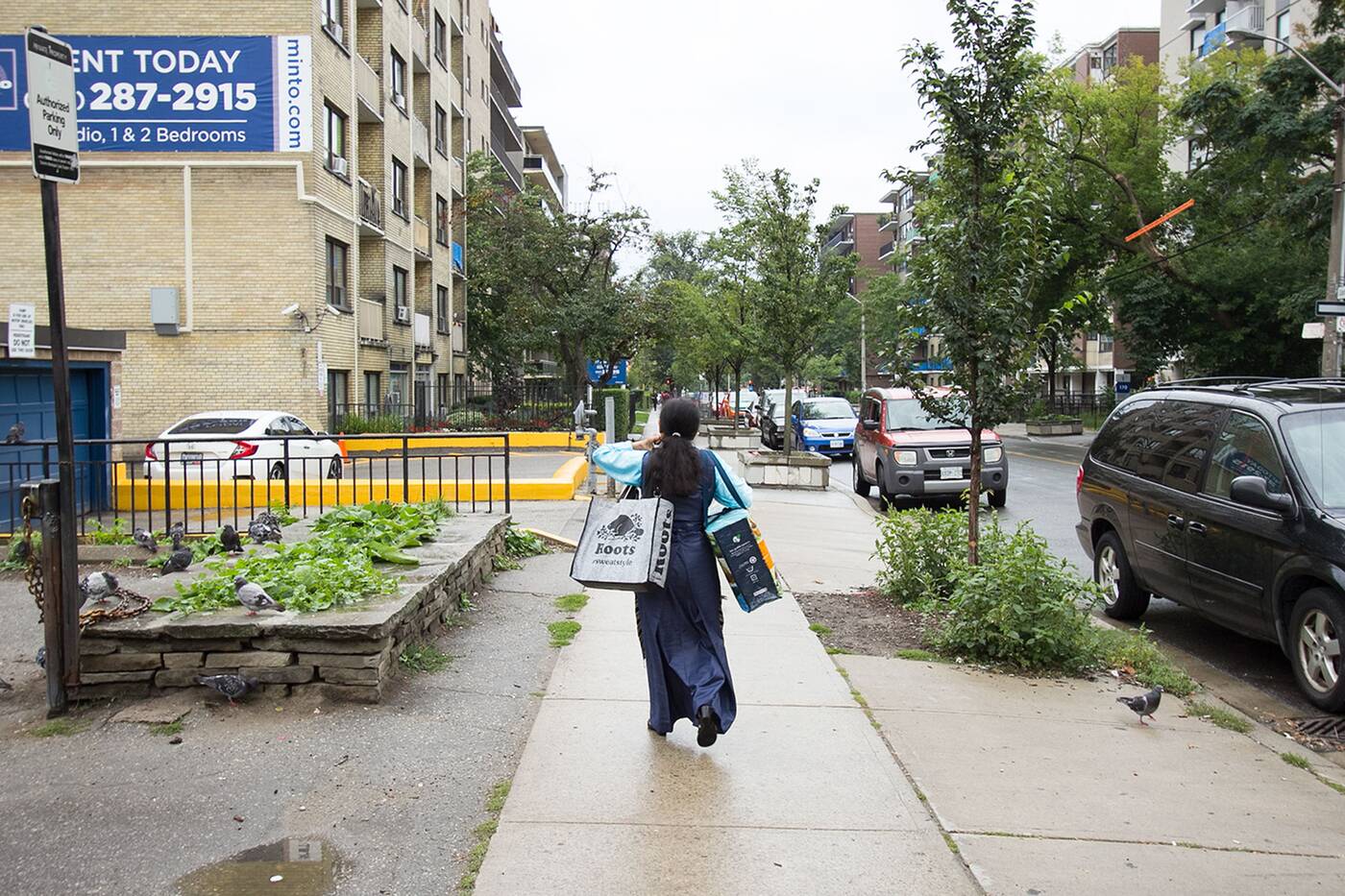
Tibetan culture defines this strip of Queen between Dunn and Sorauren Ave.
Here, exiled Tibetans can express their culture without fear of persecution. Women wearing traditional chupas walk along Jameson, and pictures of His Holiness hang freely in shops like Mandala Bakery, an action which warrants life imprisonment or death in Tibet today. 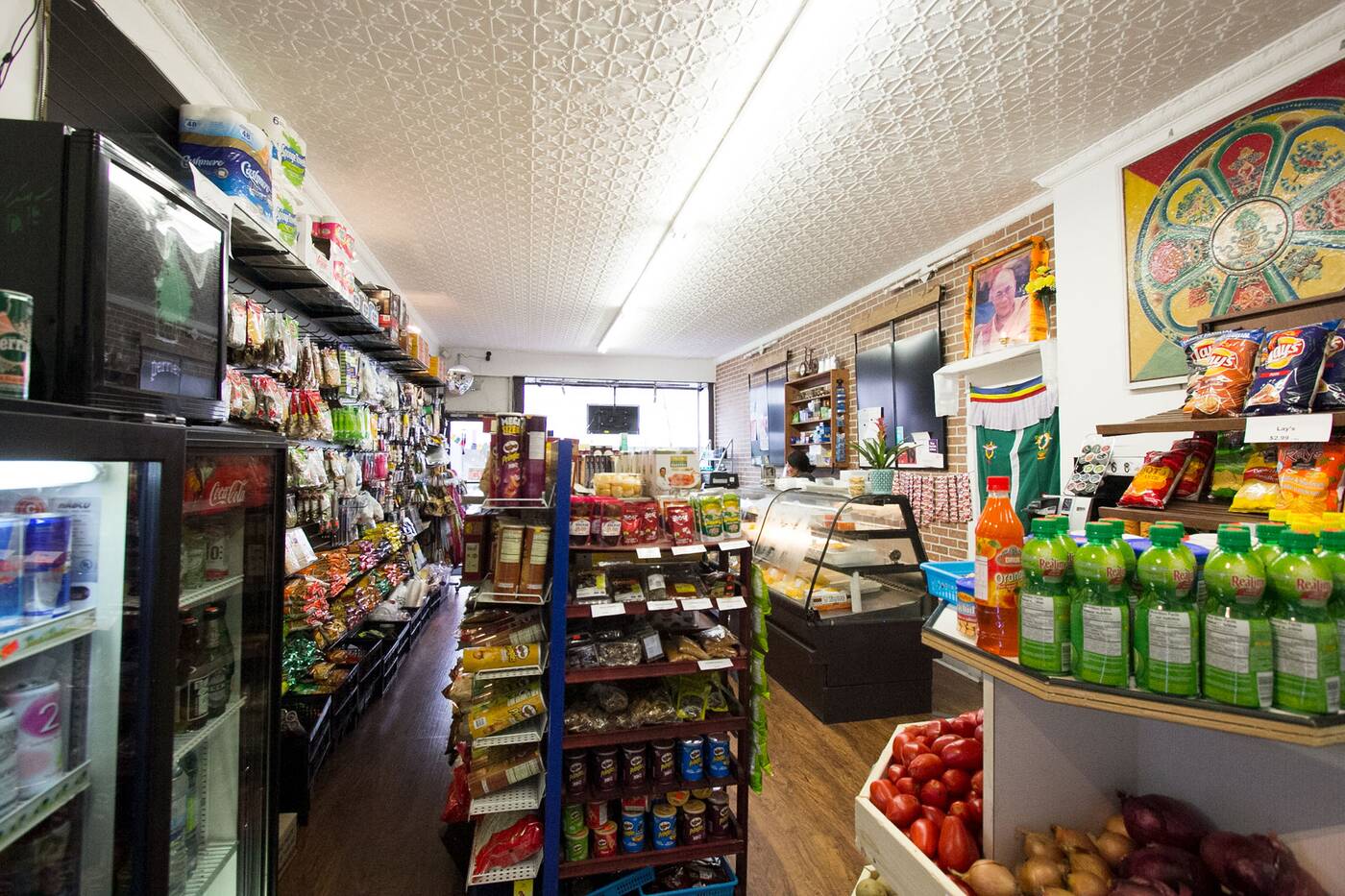
The owners of Mandala Bakery are free to hang a photo of the Dalai Lama in their shop.
Even during off-hours, restaurants like Tsampa Cafe and Himalayan Kitchen are usually full of locals speaking a mix of Hindi, Nepali, or Tibetan, while the streets bustle with elders with grocery bags filled with frozen momos in hand.
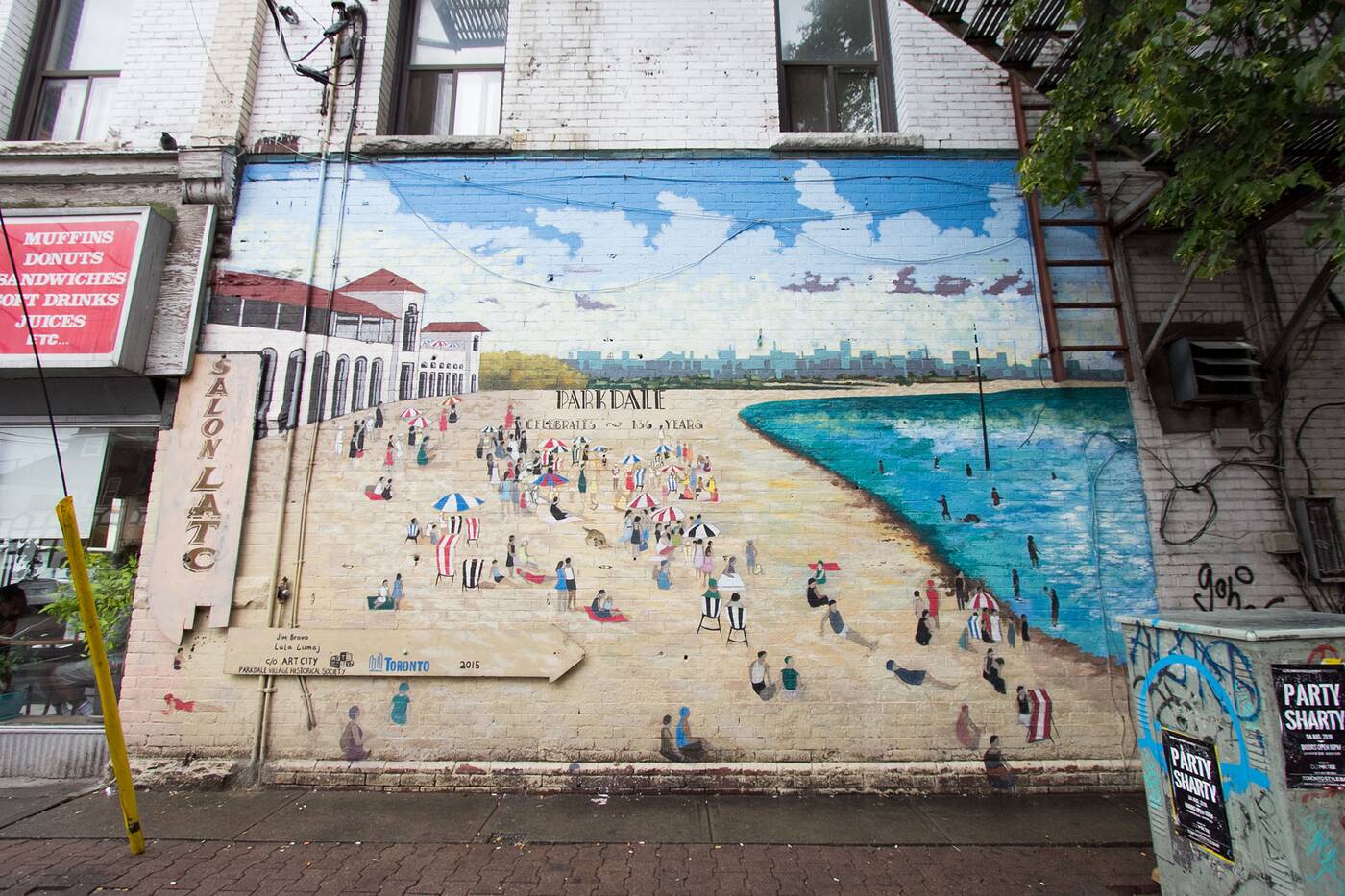
The Parkdale community has long been known as an affordable landing area for immigrants.
Considered the last leg of a diasporic journey whose stops often include India and Nepal, it's been decades since the first Tibetans were resettled in Canada under the Tibetan Refugee Program in 1971, with more than 8,000 Tibetans living in Toronto today.
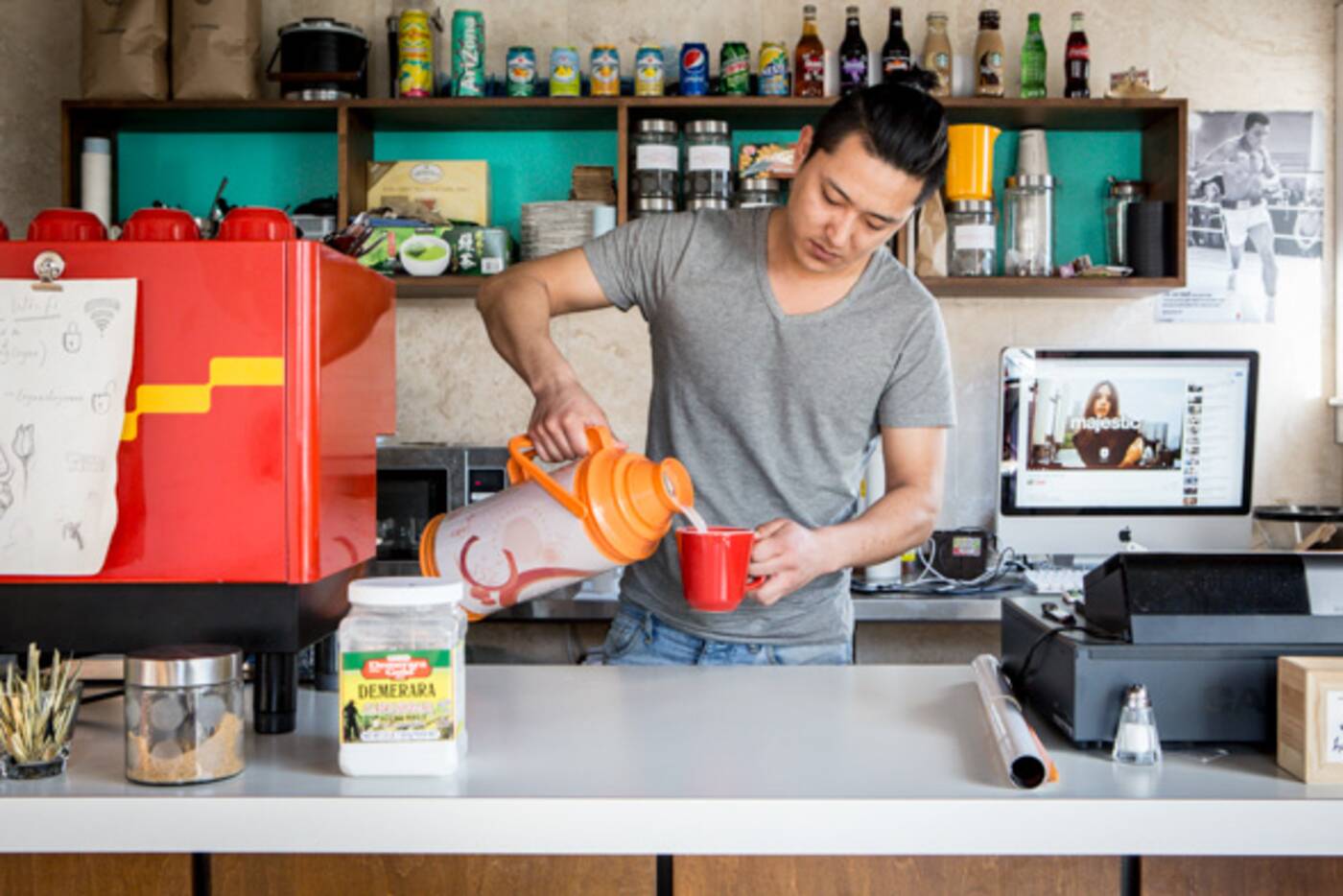
Loga's Corner is one of over ten businesses serving traditional Tibetan cuisine. Photo by Jesse Milns.
Since those early years, Tibetan culture has grown to define this small strip of Queen St. in the form of, most notably, a slew of delicious restaurants like Loga's Corner and Norling, but also by way activism, and sometimes both combined.
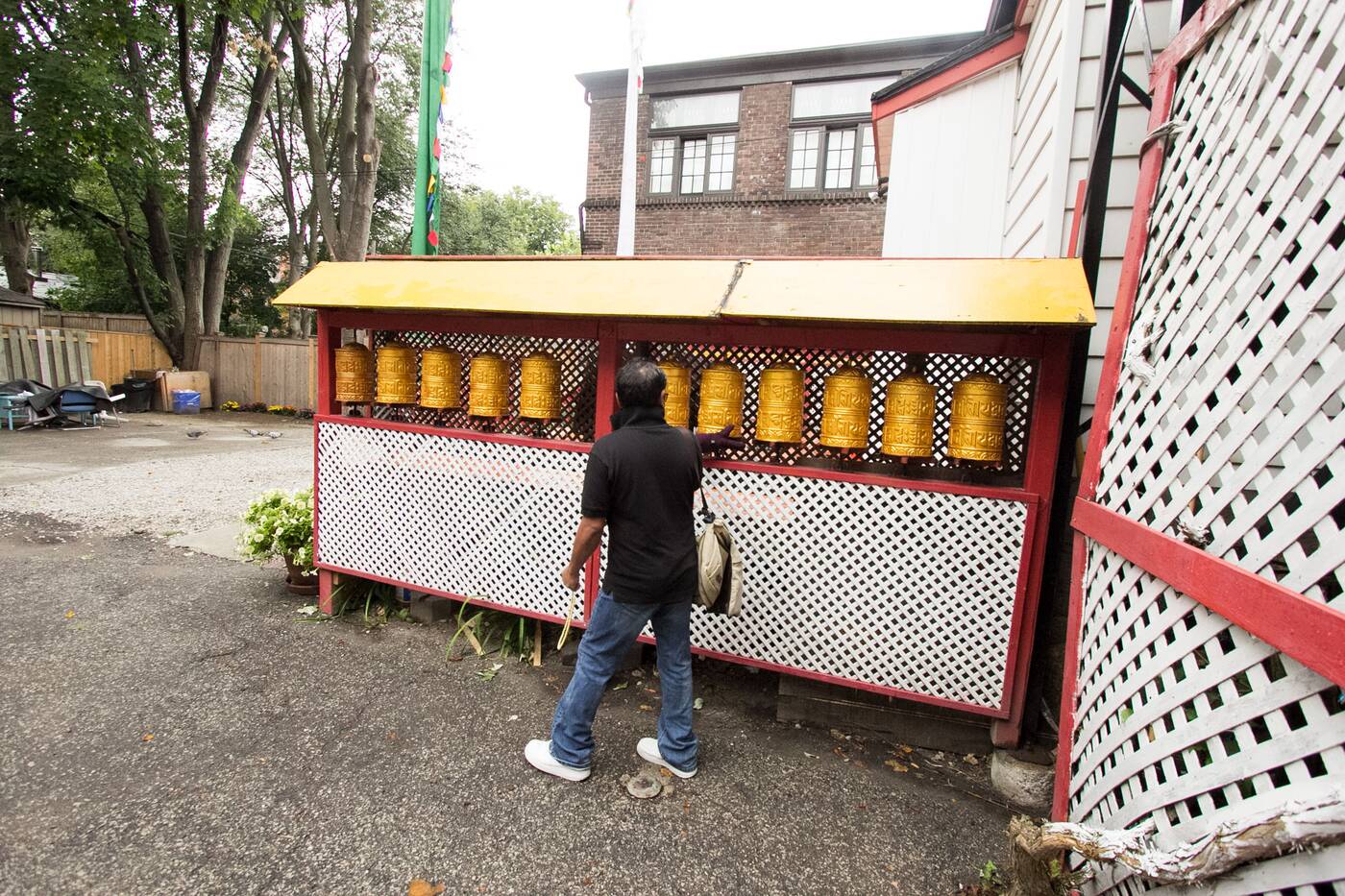
The Karma Sonam Dargye Ling Buddhist Temple sits on Maynard Avenue.
Grassroots-level civic engagement here is pretty much unmatched in any other parts of the city, led by a highly politicized Tibetan youth who, unlike older generations, are equipped with English and the social services that Toronto has to offer.
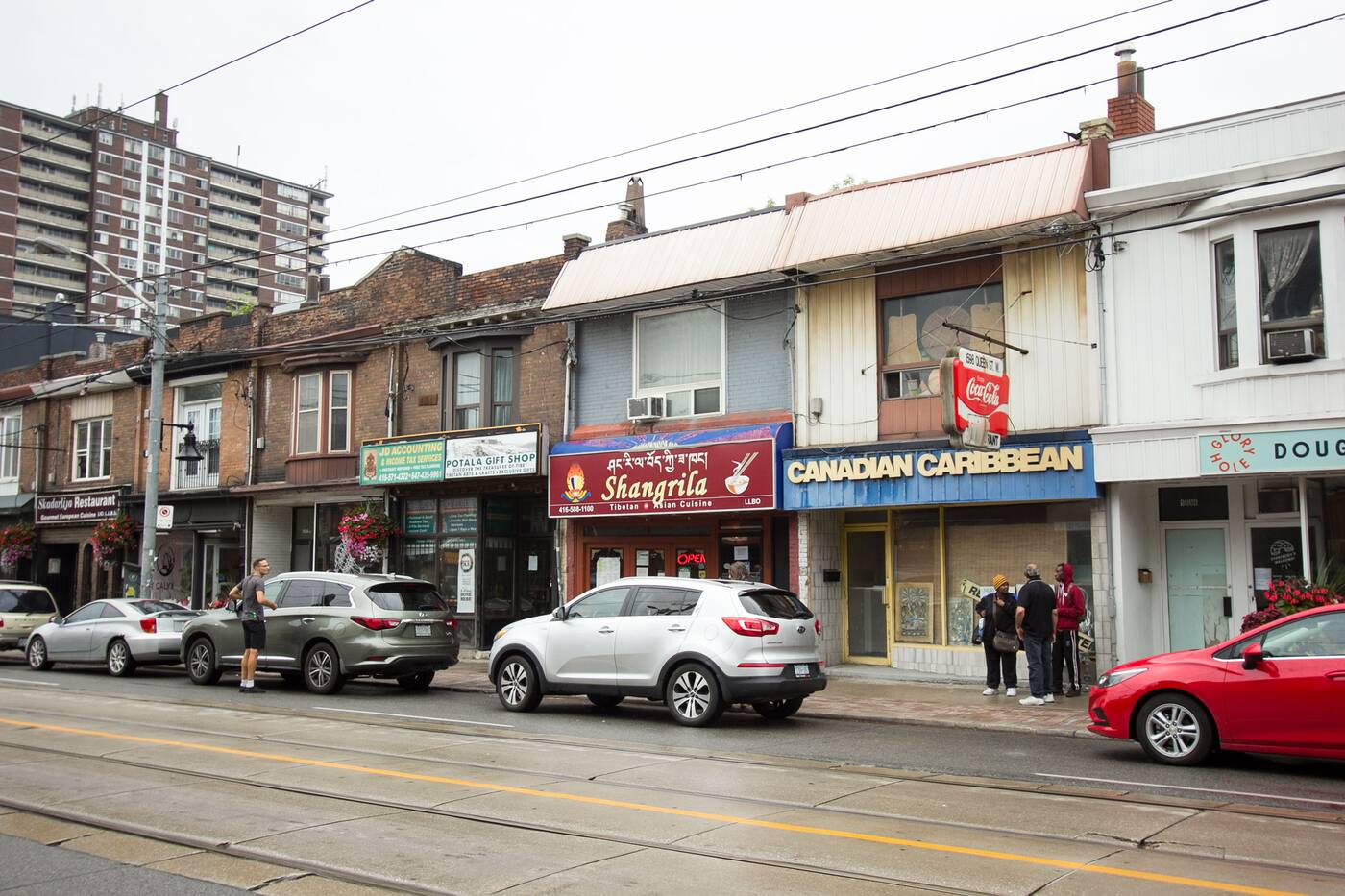
The Parkdale-High Park riding is now represented by North America's first Tibetan elected official.
Borne of that movement are people like Parkdale-native Bhutila Karpoche, who was recently elected to represent the Parkdale-High Park riding and is the first Tibetan to ever be elected into office in North America.
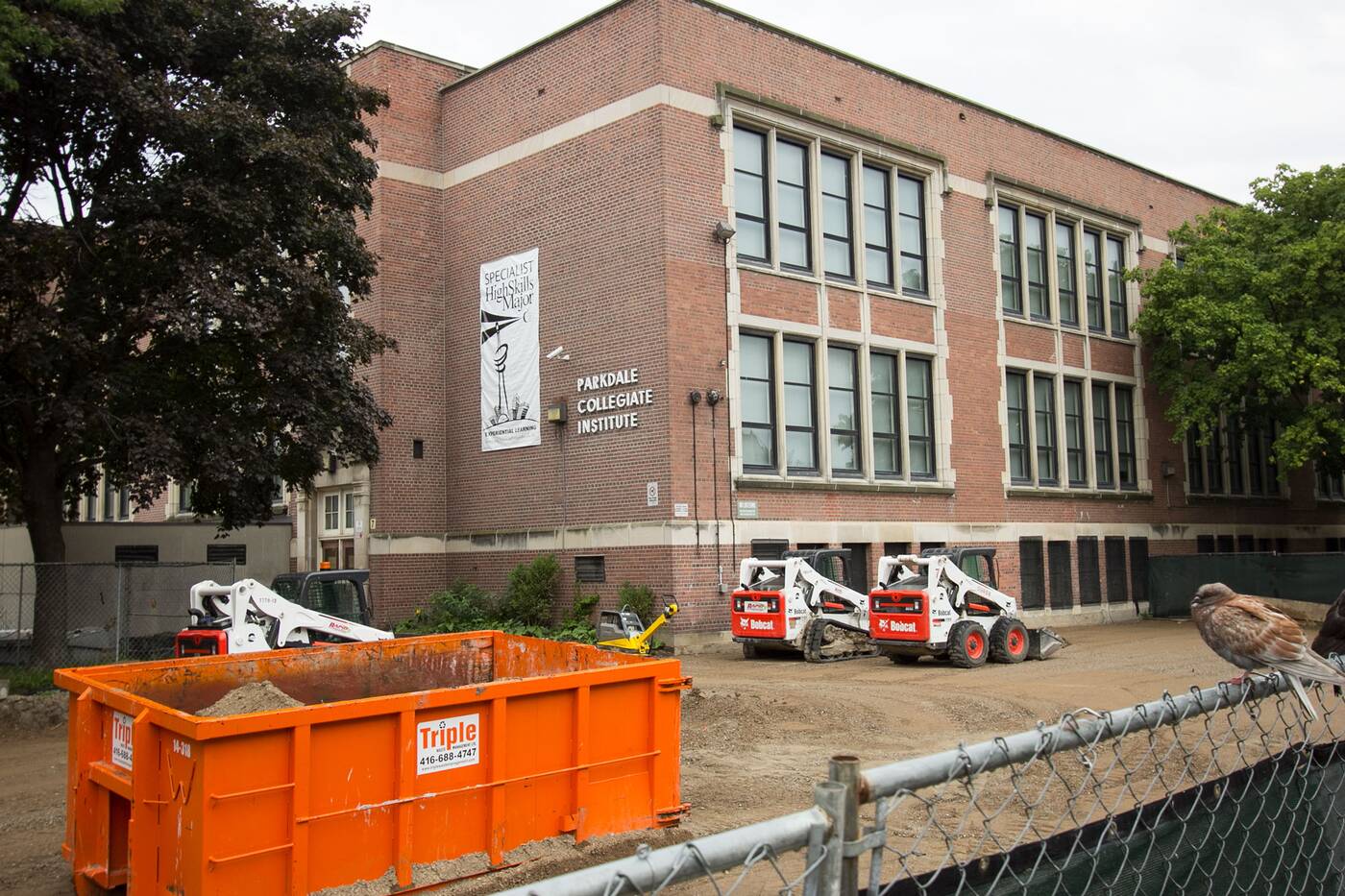
Parkdale Collegiate Institute is undergoing renovations, so Lhakar circle dances have been moved from the lawn to the tennis court.
Just a few minutes walk on Jameson (south of the Vietnamese-owned and sometimes rowdy community hub Jason's Coffee Shop where many older Tibetan men congregate) is Parkdale College Institute, an historic high school whose student population is more than 30 percent Tibetan. 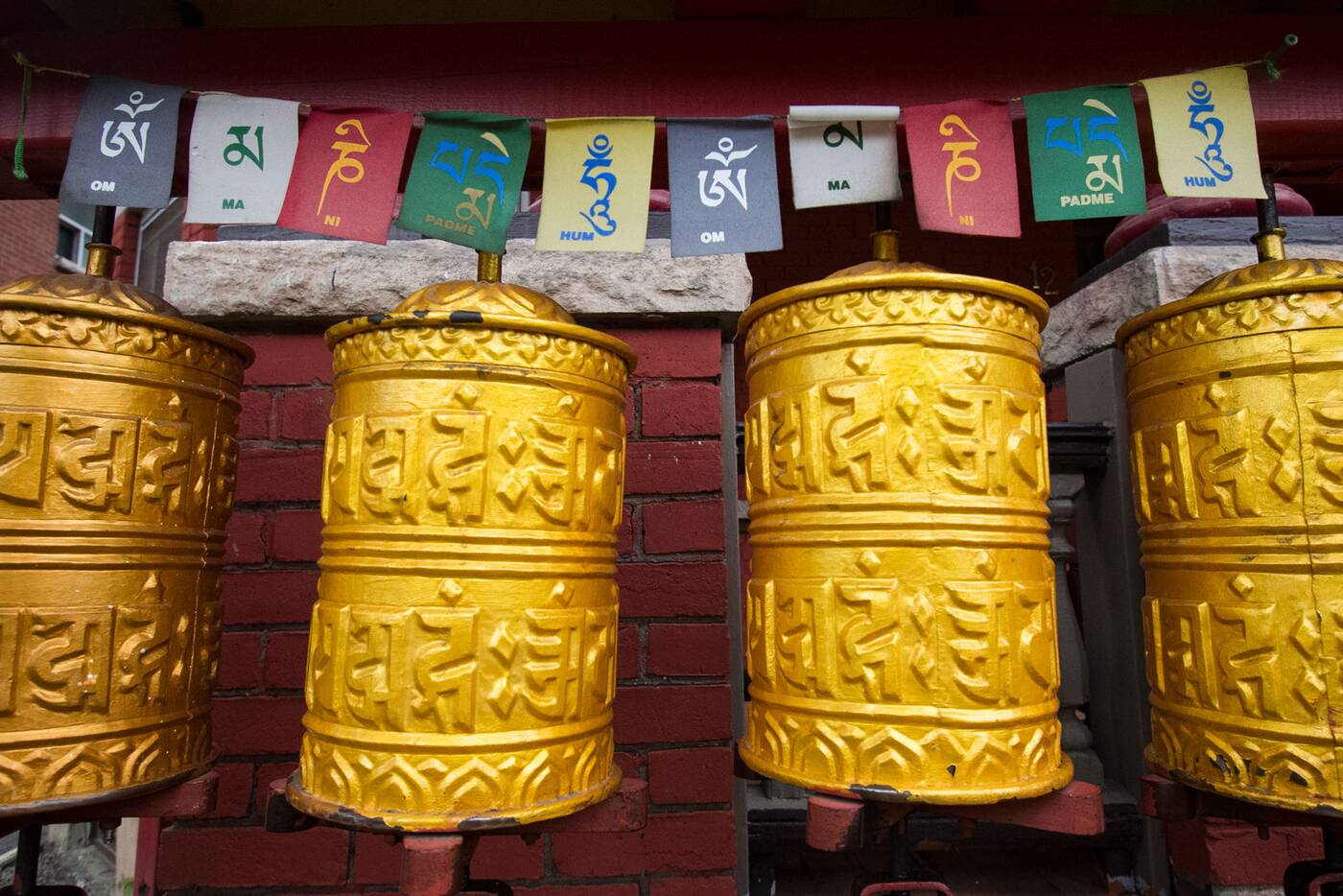
You'll see Tibetan prayer flags hung proudly from residences and businesses all around Little Tibet.
On Wednesdays you'll see scores of people gather by the tennis court to perform the traditional circle dance, performed here for the last five years in solidarity with the Lhakar movement.
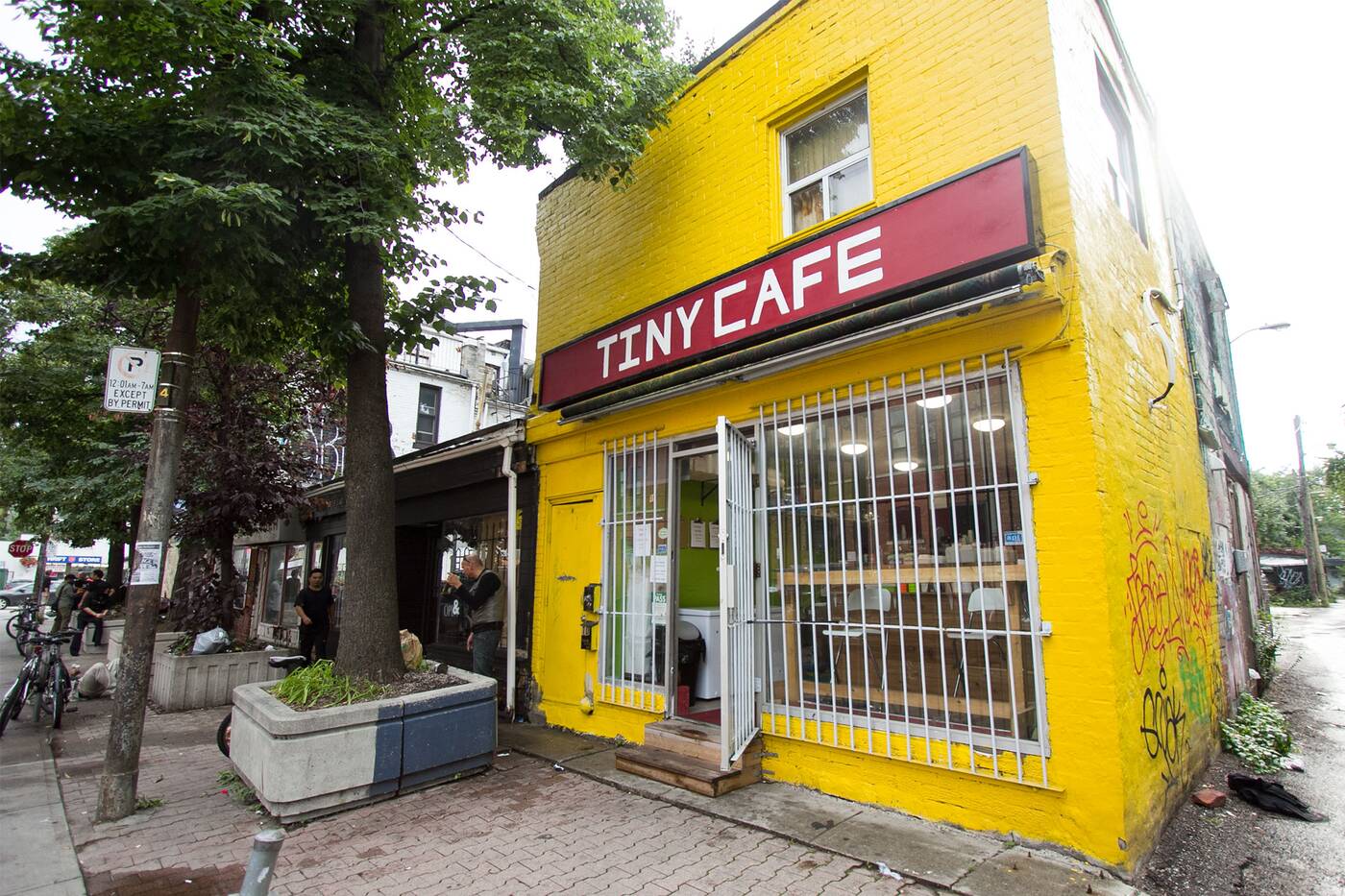
Tiny Cafe jut north of Jason's Coffee Shop is a new addition to the food scene.
But in a food-loving city like Toronto, the most visible facet of Little Tibet thus far has been the yearly event Momo Crawl, run by the Toronto chapter of Students For A Free Tibet (SFT).
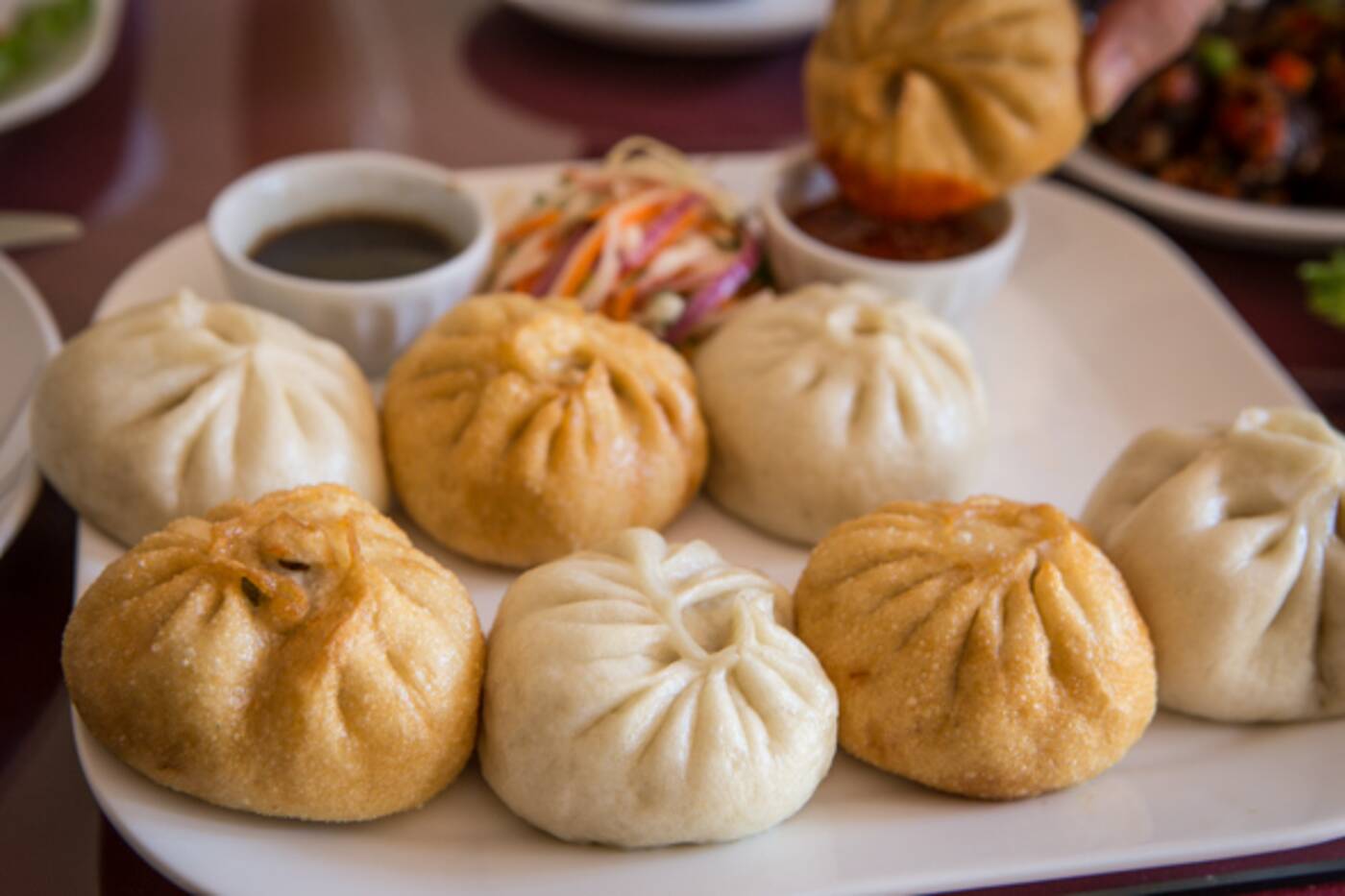
Momos are stuffed with veggies or meat and come steamed, in soup, or fried.
"We realized non-Tibetans loved momos," says Sonam Chokey, the National Director of SFT. "We saw an opportunity with the growing number of Tibetan restaurants to promote visibility for Tibetans and educate about the Parkdale area."
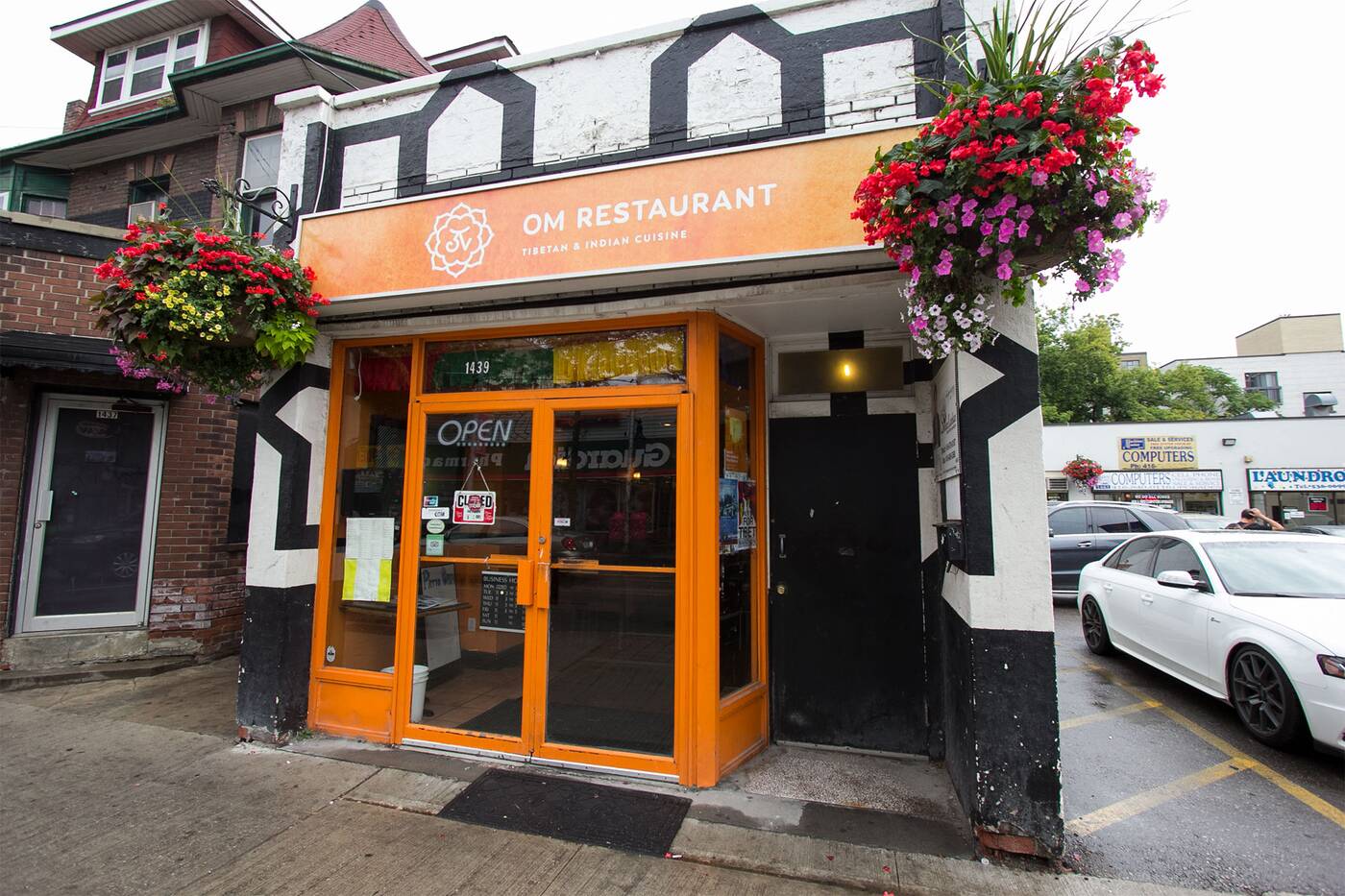
Many restaurants like OM serve a mix of Tibetan and Indian food.
Taking place on one Sunday every year, the Momo Crawl provides participants a 'momo passport' for $25 which grants them one traditional steamed dumplings from ten restaurants in Little Tibet.
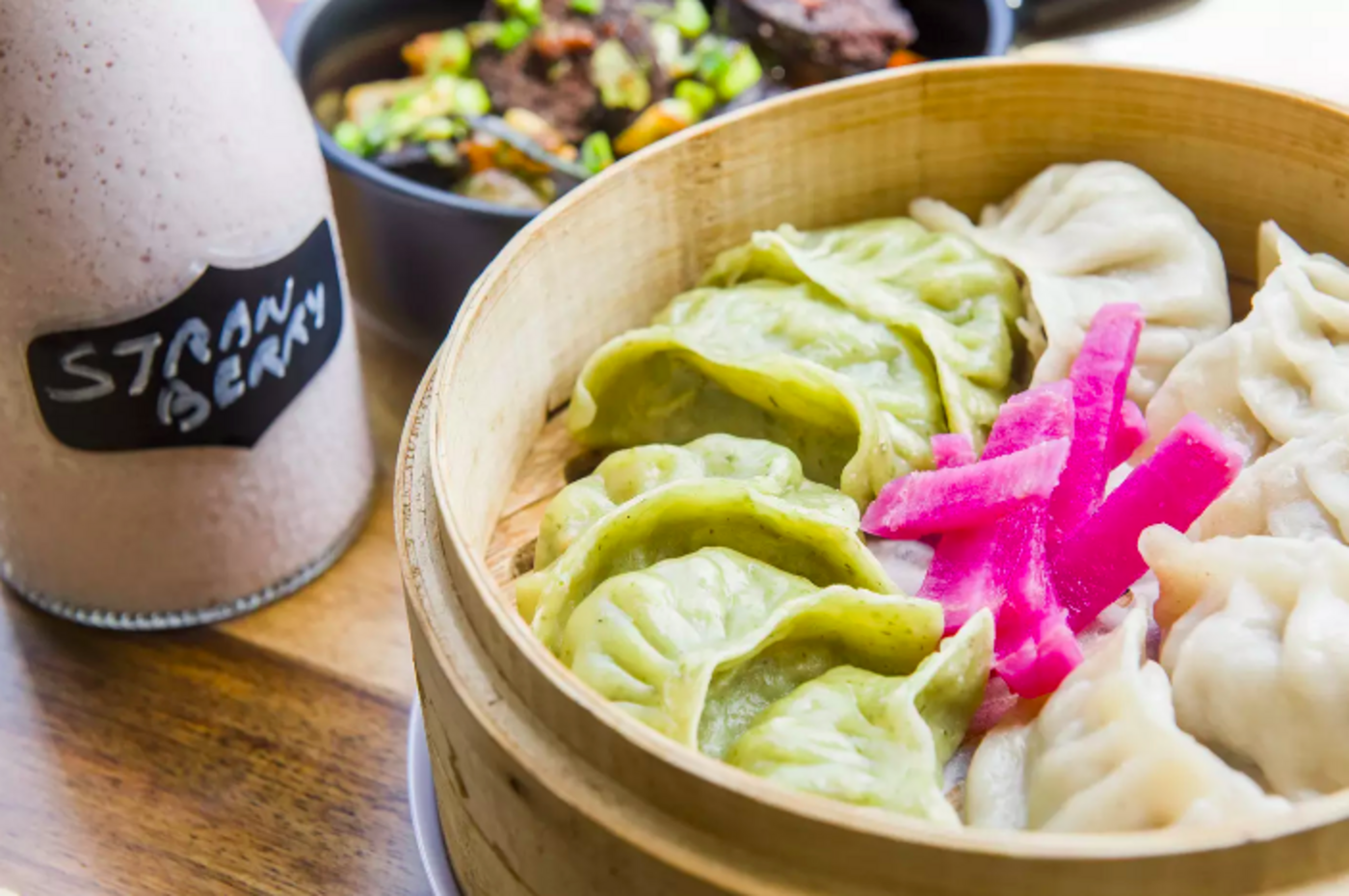
Yak Cafe is the newest participant in the annual Momo Crawl, which is run by Students For A Free Tibet. Photo by Hector Vasquez.
Half of the proceeds for momos via old faves like Shangrila and Tibet Kitchen go to SFT, and since its inception in 2015, the number of event passports sold have jumped up to 600 a year, with 90 per cent of participants being non-Tibetan.
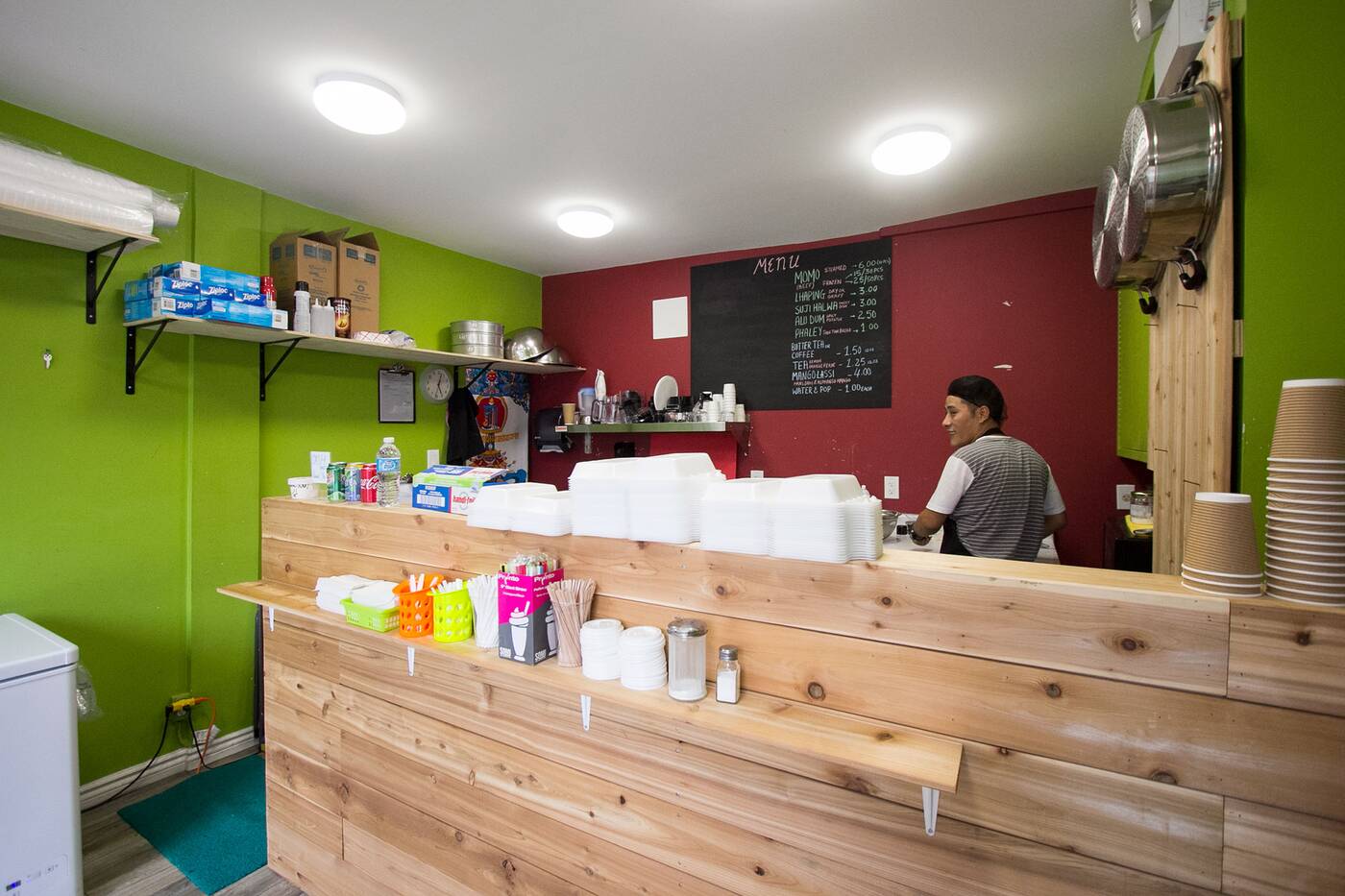
A bylaw lifting Parkdale's cap on eating establishments has raised the rent for many local businesses.
It's no secret rent has shot through the roof due to changing bylaws, directly affecting Tibetan businesses. The Momo Crawl helps old and new restaurants like Yak Cafe and Tiny Cafe by drawing customers to the area while funding the stateless Tibetan community worldwide.
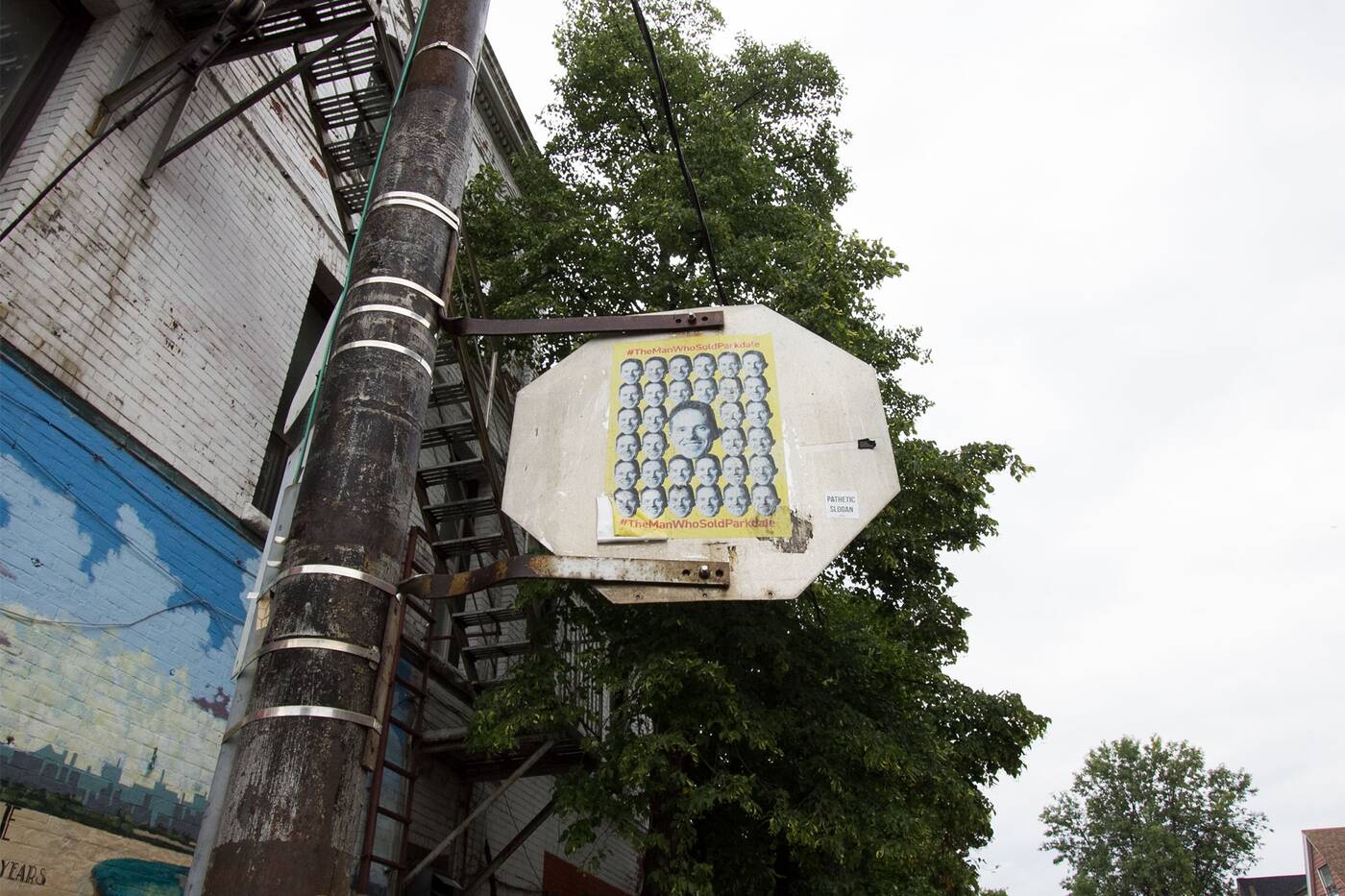
"The Man Who Sold Parkdale" signs are part of a strategic campaign to end gentrification in the area.
And as commercial efforts to re-brand the area as Vegandale threaten to overshadow the neighbourhood's history with a new type of food activism which locals view as forced and inaccessible, events like Momo Crawl stand on the other side, equipped with Tibetan cuisine. 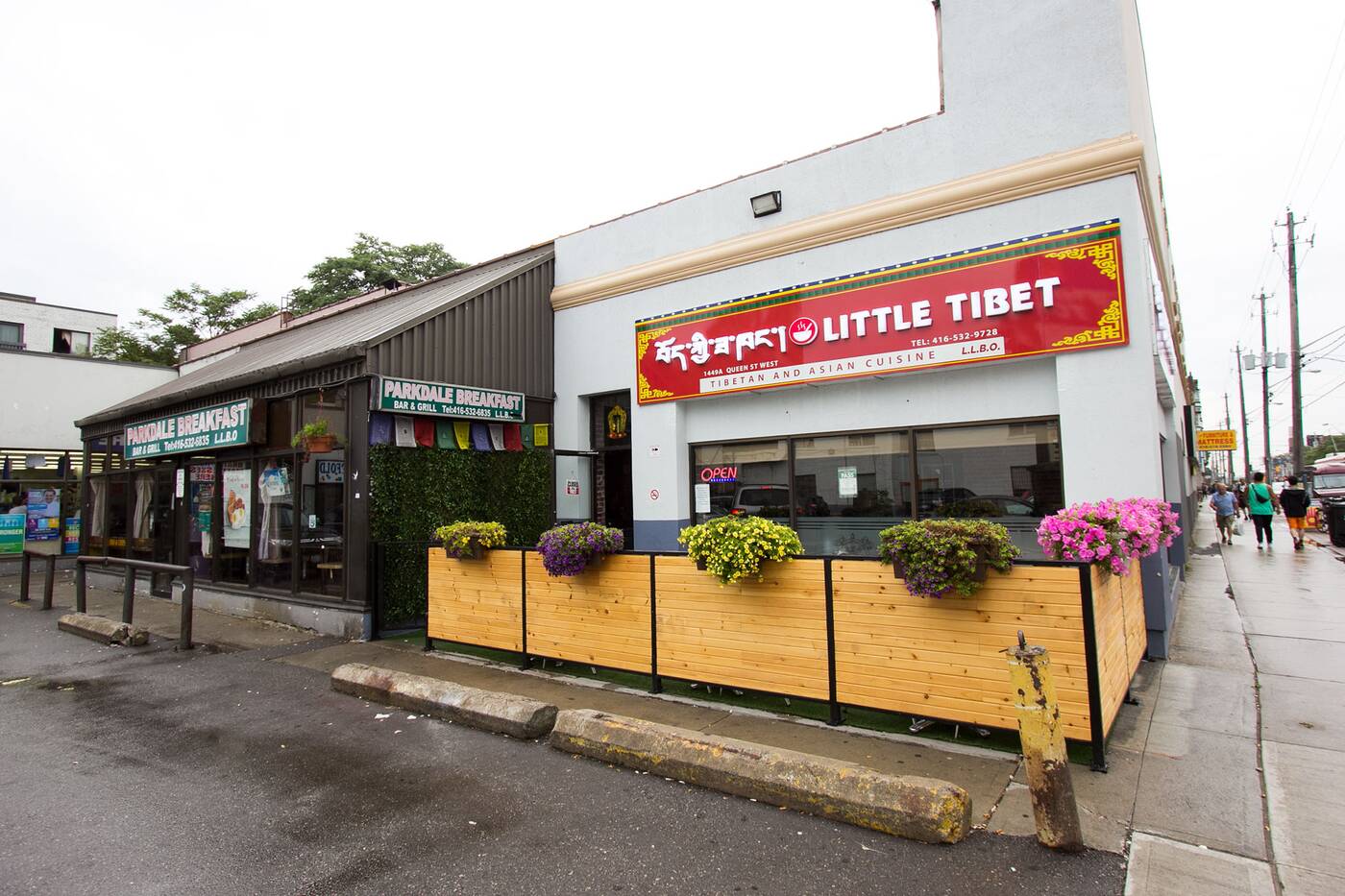
All restaurants steaming up momos are run by Tibetan families and entrepreneurs.
"Tibetans have a sort of innate longing for community so we always find each other somehow, we just gravitate toward each other," says Sonam, who, unsurprisingly, is against the re-branding of a neighbourhood where Tibetans have been living, working, and lobbying for so long.
"[Parkdale] has really become a place where Tibetans can set their roofs after being displaced for so long," she says. "It's one of the first places where I felt at home."
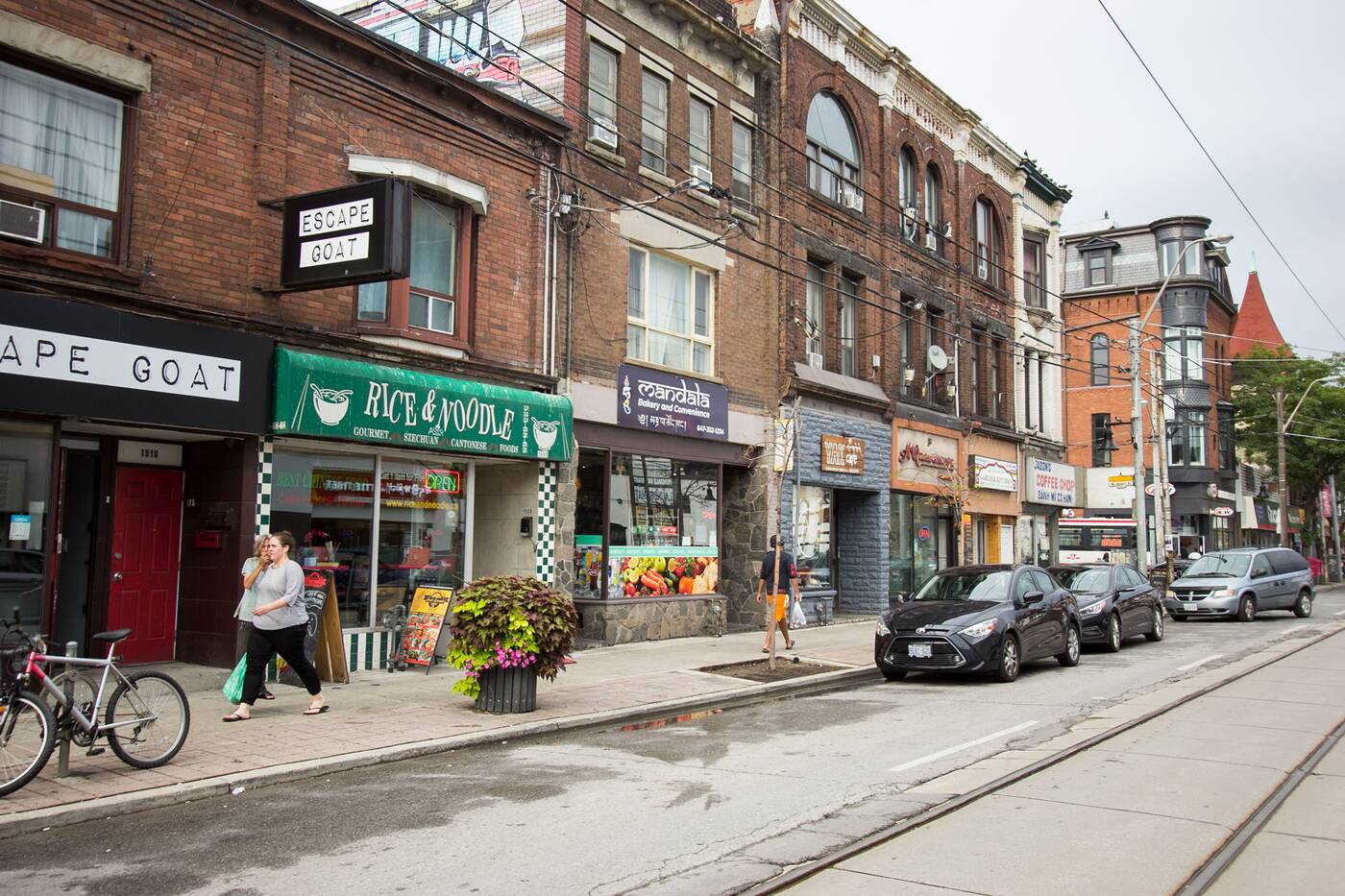
by Tanya Mok via blogTO

No comments:
Post a Comment